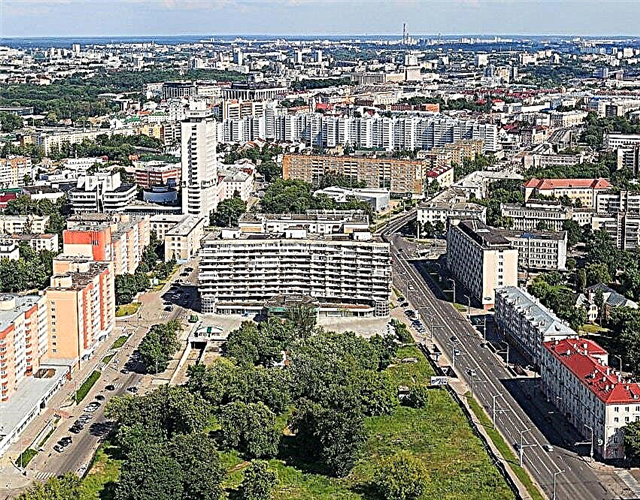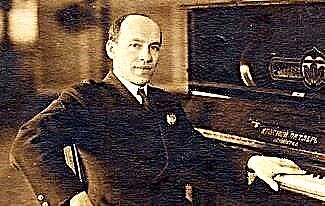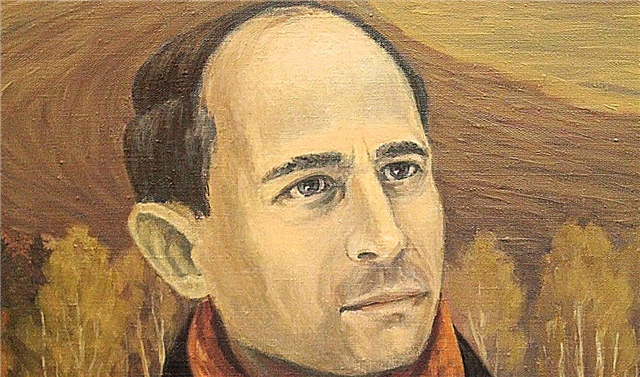Francis Lukich Skaryna - East Slavic first printer, humanist philosopher, writer, engraver, entrepreneur and scientist-doctor. Translator of the Bible books into the Belarusian version of the Church Slavonic language. In Belarus, he is considered one of the greatest historical figures.
In the biography of Francysk Skaryna, there are many interesting facts taken from his scientific life.
So, before you is a short biography of Francysk Skaryna.

Biography of Francysk Skaryna
Francis Skaryna was born supposedly in 1490 in the city of Polotsk, which at that time was located on the territory of the Grand Duchy of Lithuania.
Francis grew up and was brought up in the merchant family of Lucian and his wife Margaret.
Skaryna received his primary education in Polotsk. During that period, he attended the school of Bernardine monks, where he managed to learn Latin.
After that, Francis continued his studies at the Krakow Academy. There he deeply studied 7 free arts, which included philosophy, jurisprudence, medicine and theology.
After graduating from the academy with a bachelor's degree, Francis applied for a doctorate at the Italian University of Padua. As a result, the talented student was able to brilliantly pass all the exams and become a doctor of medical sciences.
Books
Historians still cannot say for sure what events took place in the biography of Francysk Skaryna in the period 1512-1517.
From the surviving documents, it becomes clear that over time he left medicine and became interested in book printing.

Having settled in Prague, Skaryna opened a printing yard and began to actively translate books from the Church language into East Slavic. He successfully translated 23 biblical books, including the Psalter, which is considered to be the first Belarusian printed edition.
For that time, the books published by Francysk Skaryna were of great value.
An interesting fact is that the author supplemented his works with prefaces and comments.
Francis strove to make such translations that even ordinary people could understand. As a result, even uneducated or semi-literate readers could understand the Sacred texts.
In addition, Skaryna paid great attention to the design of printed publications. For example, he made engravings, monograms and other decorative elements with his own hand.
Thus, the works of the publisher became not only carriers of some information, but also turned into objects of art.
In the early 1520s, the situation in the Czech capital changed for the worse, which forced Skaryna to return home. In Belarus, he was able to establish a printing business, publishing a collection of religious and secular stories - "Small travel book".
In this work, Francis shared with readers various knowledge related to nature, astronomy, customs, the calendar and other interesting things.
In 1525 Skaryna published his last work, "The Apostle", after which he went on a trip to European countries. By the way, in 1564 a book with the same title will be published in Moscow, the author of which will be one of the first Russian book printers named Ivan Fedorov.

In the course of his wanderings, Francis encountered a misunderstanding from the representatives of the clergy. He was exiled for heretical views, and all his books, printed with Catholic money, were burned.
After that, the scientist practically did not engage in book printing, working in Prague at the court of the monarch Ferdinand 1 as a gardener or doctor.
Philosophy and religion
In his comments on religious works, Skaryna showed himself as a philosopher-humanist, trying to conduct educational activities.
The printer wanted people to become more educated with his help. Throughout his biography, he called on the people to master the literacy.
It is worth noting that historians still cannot come to a consensus about the religious affiliation of Francis. At the same time, it is reliably known that he was repeatedly called a Czech apostate and heretic.
Some biographers of Skaryna are inclined to believe that he could have been a follower of the Western European Christian Church. However, there are many who consider the scientist an adherent of Orthodoxy.
The third and most obvious religion attributed to Francysk Skaryna is Protestantism. This statement is supported by relationships with reformers, including Martin Luther, as well as service with the Duke of Königsberg Albrecht of Brandenburg of Ansbach.
Personal life
Almost no information has been preserved about the personal life of Francysk Skaryna. It is known for certain that he was married to a merchant's widow named Margarita.
In the biography of Skaryna, there is an unpleasant episode associated with his older brother, who left large debts to the first printer after his death.

This happened in 1529, when Francis lost his wife and raised his little son Simeon on his own. By order of the Lithuanian ruler, the unfortunate widower was arrested and sent to jail.
However, thanks to the efforts of his nephew, Skaryna was able to be released and receive a document that guaranteed his immunity from property and litigation.
Death
The exact date of the death of the educator remains unknown. It is generally accepted that Francis Skaryna died in 1551, since it was at this time that his son came to Prague for an inheritance.
Dozens of streets and avenues have been named in memory of the achievements of a philosopher, scientist, doctor and printer in Belarus, and many monuments have been erected.









